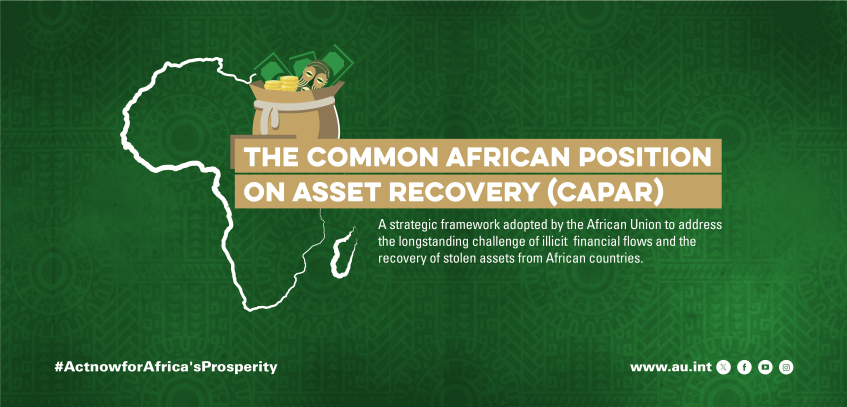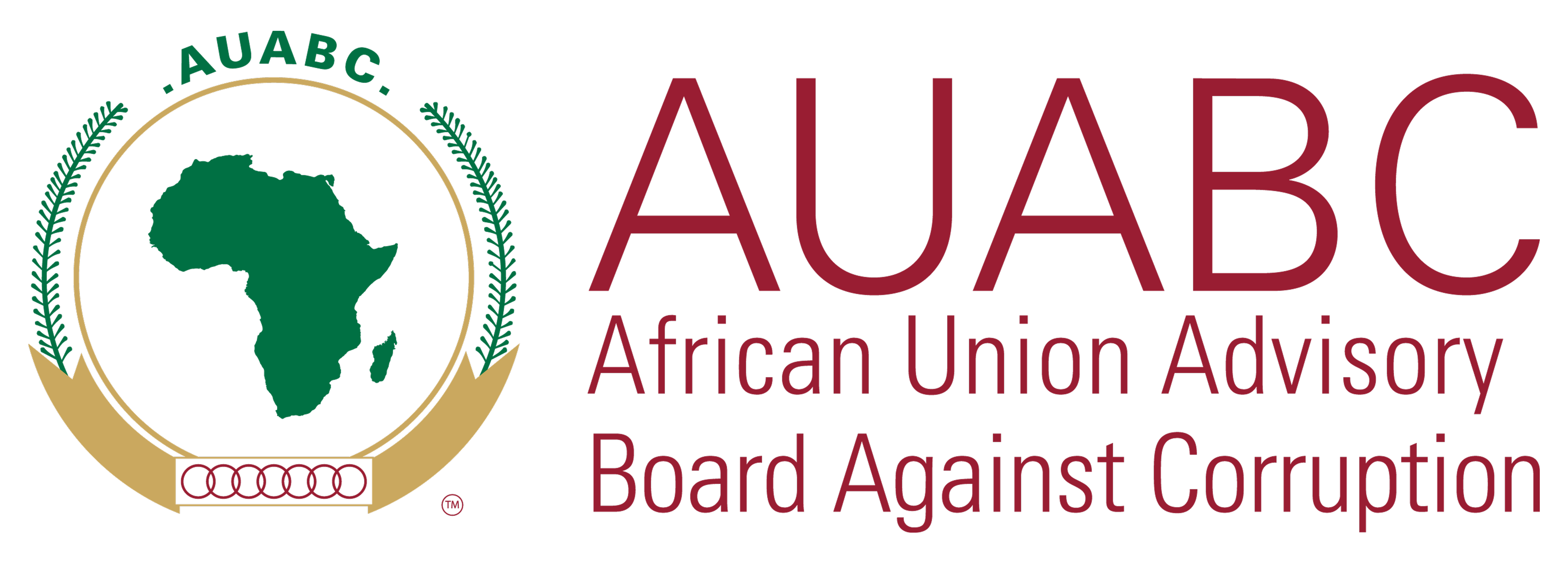About the Common African Position on Asset Recovery(CAPAR)
The African Union (AU) adopted the Common African Position on Asset Recovery (CAPAR) in February 2020 as a policy and advocacy tool to combat illicit financial flows. Through its four strategic pillars, CAPAR provides a coherent policy and strategic framework to drive the continental agenda for asset recovery.
CAPAR focuses on promoting collaboration, capacity building, and policy development to enhance African countries' ability to combat illicit financial flows and recover stolen assets. These efforts aim to strengthen governance, promote transparency, and ensure that recovered assets are returned to affected populations.
It aims at mobilizing political support, resources, and expertise to enable African countries to recover more stolen assets and use them to support development by setting out recommended measures and actions which Member States are to implement in a way that respects their development priorities and sovereignty.
Background context
In January 2015, the 24th Ordinary Session of the Assembly of Heads of State of the African Union, held in Addis Ababa, Ethiopia, adopted the Special Declaration on Illicit Financial Flows (Assembly/AU/Decl.5(XXIV) and therefore endorsed the findings and recommendations of the African Union/United Nations Economic Commission for Africa’s High Level Panel Report on Illicit Financial Flows from Africa (High Level Panel Report).
The AU designated 2018 as the African Anti-Corruption Year, under the theme: “Winning the Fight against Corruption: A Sustainable Path to Africa’s Transformation”. One of the key issues highlighted in the year was on “the corrosive role that secrecy jurisdictions play in concealing ill-gotten assets” which led to the adoption of the Nouakchott Declaration on the Anti-Corruption Year at 31st Summit of Heads of State and Governments in Nouakchott, Mauritania.
This declaration facilitated the adoption of Common African Position of Asset Recovery (CAPAR).
Pillars of CAPAR
- Detection and identification of assets.
- Recovery and return of assets.
- Management of recovered assets.
- Cooperation and partnerships
African Asset Recovery Practitioners Forum (AARP-Forum)
The ultimate test for CAPAR, as a policy and strategic instrument, is in its implementation. Implementing CAPAR requires buy-in and support from practitioners. Firstly, the practitioners must fully understand and embrace the common position advocated by CAPAR and realize that they have been, and will remain, at the forefront of asset recovery efforts while also recognizing and appreciating the existing gaps, challenges, and opportunities offered by the new policy direction. Indeed, the content and the pillars of the CAPAR were developed with the participation and insights given by practitioners and policymakers.
To this end, following several expert consultative meetings, a recommendation was made calling for the establishment of a Forum to bring together asset recovery experts to facilitate the effective implementation of CAPAR and contribute to combating illicit financial flows across Africa. This Forum would serve as a platform to facilitate the implementation of CAPAR. In response to this recommendation, the African Asset Recovery Practitioners (AARP) Forum was launched in April 2025 in Nairobi Kenya which led to the adoption of the Nairobi Declaration, and the adoption of the African Asset Recovery Practitioners Charter.
Objectives of the AARP-Forum
The objectives of the AARP-Forum are linked with the pillars of CAPAR.
General Objective: Support AU Member States in effectively implementing CAPAR.
Specific Objectives:
Pillar (i) Detection and identification of assets.
Pillar (ii) Recovery and return of assets.
Pillar (iii) Management of recovered assets.
Pillar (iv) Cooperation and partnerships.
Pillar (v) Cross cutting objectives
Join the AARP-Forum
Membership to the AARP-Forum shall be open to African Union Member States’ National Institutions with a mandate on identification, location, freezing, seizure, and forfeiture or confiscation of assets and includes asset management and asset sharing and return.
Observer status is available for bodies that play a significant role in asset recovery.
Key resources:













